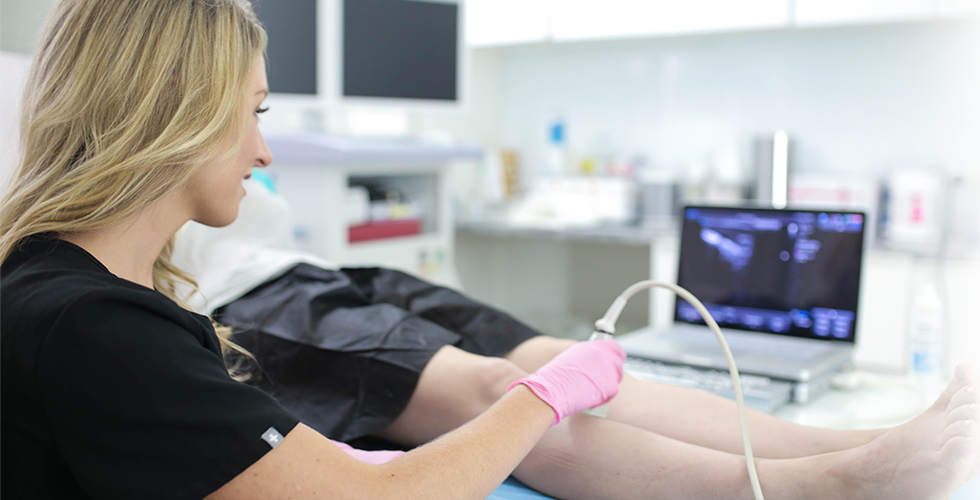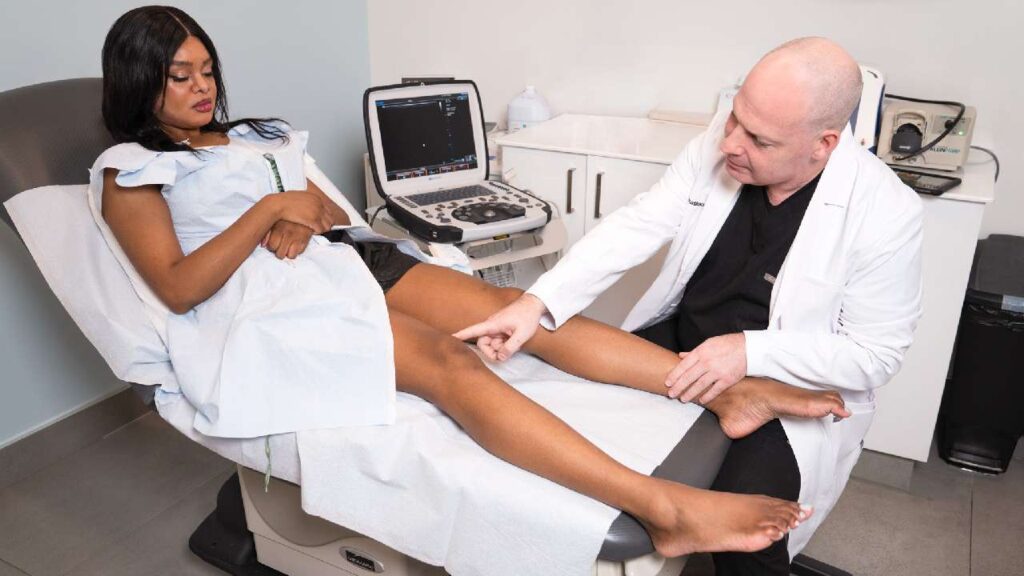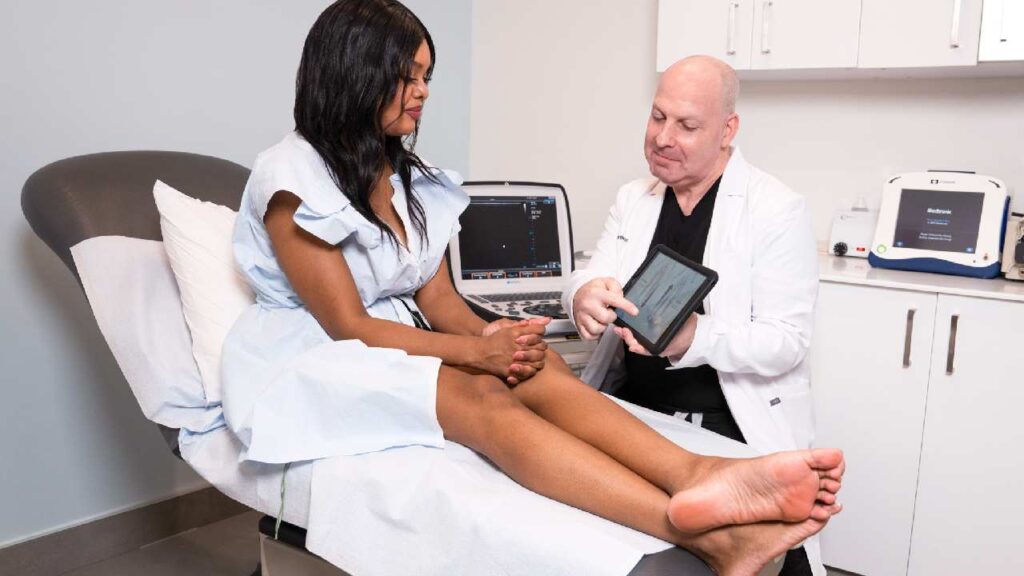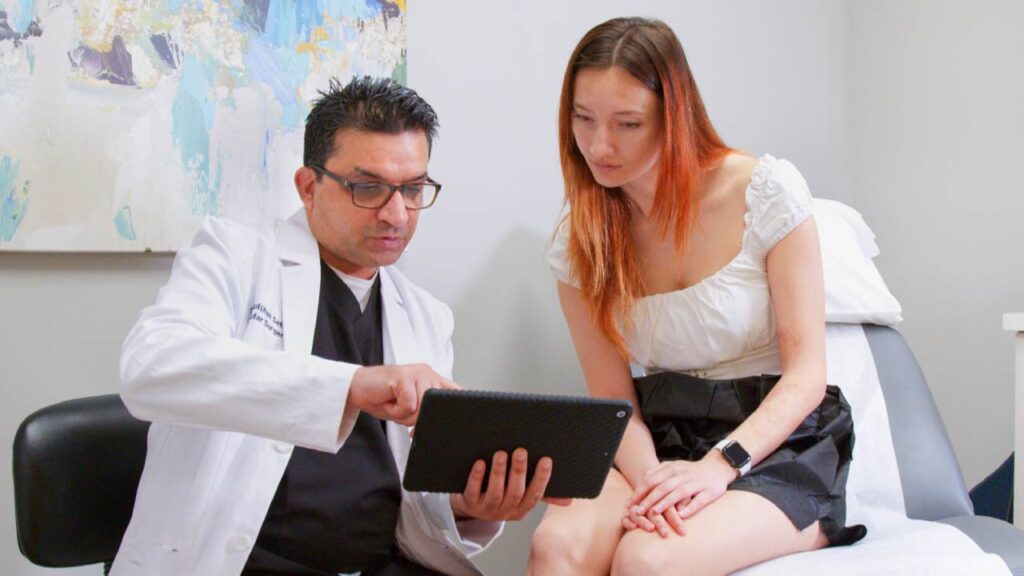The Best NYC Vein Doctors Accept All Major Insurance Plans
Some patients assume spider veins and varicose veins are cosmetic issues. While they don’t all present serious risks, damaged blood vessels aren’t only a visual nuisance. They often represent problems in deeper vasculature, which can include broken valves, deep vein thrombosis, and weakened vein walls. When the problem is more than skin deep, most insurance companies cover it. Book an appointment with Harvard-trained vein doctors who accept all major insurance plans to discuss your options. Untreated vein damage can result in debilitating symptoms.
Vein specialists who are board certified in fields including vein medicine and diagnostic radiology, and who use FDA-approved procedures, often get full insurance coverage for their patients. Beyond vascular complications, there’s growing evidence that damaged veins are linked to osteoporosis, hypertension, and other serious health conditions. The good news about these findings is that health insurance companies are now awarding vein treatment the coverage it deserves. See a qualified vein doctor before complications arise.

Ultrasound-Trained Vein Doctors Help with Insurance Coverage
When selecting a vein specialist, choose one with ultrasound training to increase the likelihood of acquiring insurance coverage. Since many varicose veins and spider veins result from problems in deeper veins, ultrasound imaging can help prove the medical necessity of treatment. Leg veins rely on valves to close once blood flows through them, to keep blood moving toward the heart. If valves fail, blood flows in reverse, elevating pressure in the vein. That causes bulging varicose veins and clusters of spider veins to develop.
Many cosmetic vein specialists don’t use ultrasound technology. Other vein doctors rely on ultrasonographers to examine the veins. But the best vein doctors are trained in ultrasound-guided procedures so they can detect and treat problems in every vein, not just those you can see at the surface. This is the key to lasting vein treatments. If you don’t treat the source, more vein damage can develop. The top vein doctors can submit images of underlying causes to your insurance carrier, so your treatment is deemed medically necessary.
Some New York Vein Clinics Don’t Take Health Insurance
It’s important to note that some New York vein specialists don’t accept health insurance. These include many estheticians, dermatologists, and cosmetic surgeons. Since these specialists aren’t vein doctors, they aren’t trained in the procedures that insurance companies support. Surface laser treatments and superficial injections might not be considered medically necessary. Instead, choose a vein doctor who offers minimally invasive procedures including radiofrequency ablation (ClosureFast), mechanochemical ablation (ClariVein), foam sclerotherapy (Varithena), liquid sclerotherapy (Asclera), and vein adhesives (VenaSeal).
These treatments are injected into the vein, rather than applied to the surface of the skin. They’re widely accepted methods for spider and varicose vein treatment. They’re also the most effective ways to erase unsightly veins. Surgery was once a common treatment for varicose veins. But it carries risks including anesthesia complications, bleeding, infection, scarring, and nerve damage. Veins can also grow back after they’re cut out of the body. Closing them off with a minimally invasive method is a more permanent solution than surgical extraction for most patients. Once a vein is properly sealed, it’s absorbed by surrounding tissue and removed from circulation.
Some Plans Require a Trial of Compression Stockings
Some insurance plans require a trial of compression stockings before they’ll cover vein treatment. This varies by the carrier, and our insurance specialists know how to help. Our vein doctors can fit you with the proper size to ensure you get maximum benefits from compression therapy. We’ll document the efficacy and submit all paperwork on your behalf. Most patients find that they still need vein treatment after wearing support hose. Compression can reduce symptoms of swelling and cramping in some patients. But it can’t close off or eliminate the damaged vein. Nor can it treat underlying causes like broken valves.
Compression stockings are a long-term, symptom-management tactic. In contrast, minimally invasive vein treatments are quick and permanent solutions. Most cutting-edge vein treatments take just 15 to 30 minutes to complete. Patients remain awake and can drive themselves to and from the appointment. They can also resume their usual daily activities, including moderate exercise, right after treatment. Compression isn’t safe or effective for everyone. Visit our caring vein doctors if your company requires it, and we’ll help you navigate the process.
Chronic Venous Insufficiency Affects Insurance Coverage
If your varicose veins or spider veins are caused by weak vein walls or faulty vein valves, you might have a condition called Chronic Venous Insufficiency. It is common yet underdiagnosed, and it can produce a range of symptoms, including leg swelling, itching, cramping, heaviness, restlessness, fatigue, and pain. If you have this condition, insurance companies are more likely to cover your vein care. It’s important to see a qualified vein doctor who can diagnose this issue. Diagnosis often requires ultrasound tests or vein mapping to find issues in veins that aren’t visible through the skin’s surface. Detecting Chronic Venous Insufficiency is not only beneficial for insurance coverage, it’s also a benefit to your health. The correlated symptoms can be debilitating and can progress to serious complications, which you’ll read about below.
Some Symptoms of Vein Disease Are Deemed Medically Relevant
If you have symptoms of vein disease, your vein treatment will likely be deemed medically necessary. These include the leg swelling, pain, restlessness, itching, fatigue, cramping, and heaviness mentioned above. Some patients’ symptoms progress to include slow-healing venous ulcerations, hyperpigmentation, and venous stasis dermatitis. Certain veins are prone to profuse bleeding with a minor abrasion. This can become a medical emergency. Other patients have symptoms of blood clots, such as a raised, reddened, warm area on the skin.
These issues require prompt treatment for your safety. Insurance coverage includes these significant problems. Contact us today to learn more about how to get vein treatment covered, and more importantly, how to restore your vascular health! We have a vein clinic in Midtown, near the Library Hotel. We also have locations in the Financial District, Brooklyn, Hartsdale, and throughout Long Island. Visit us for affordable, gentle vein relief today.





